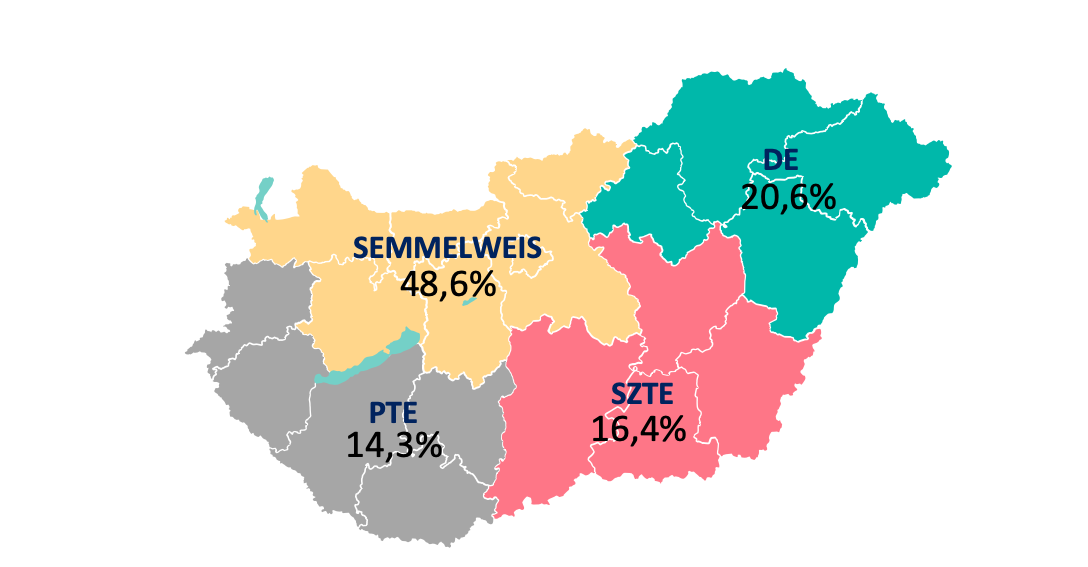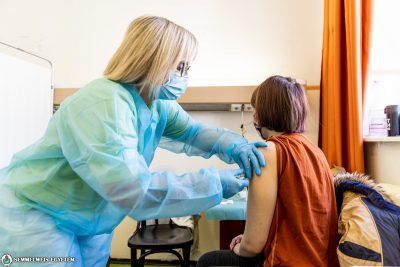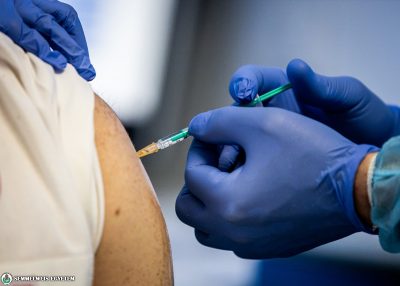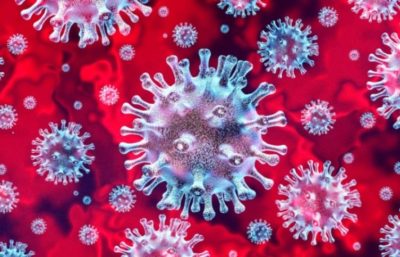Based on the results of the testing, a national clinical epidemiology study will be prepared on what the actual number of infected people is in Hungary, how many people have been infected so far and may have acquired immunity to the virus, and how many virtually asymptomatic virus carriers there may be.
“The screening will be conducted using so-called PCR tests, which are the most reliable currently known method for screening the infection, as this test can detect the presence of the virus’s genetic material,” noted Dr. Béla Merkely, Rector of Semmelweis University. The test involves taking a sample from the patient’s respiratory secretions (from the back of the nose and throat) using a swab, which is then placed in a special tube, and genetic tests are used to detect the presence of the virus. In addition to PCR tests, blood samples will also be taken from the selected test subjects, and this confirmation lab test will show whether the body has generated an immune response to the virus, said Dr. Béla Merkely.
A total of 17,778 people, covering every age group above the age of 14, will be invited to take part in the testing, selected with the help of statisticians at the Central Statistical Office (KSH) of Hungary. The participants will also be asked to fill out a short questionnaire.
Those selected will be informed ahead of time by mail or phone by the universities, and will be asked to visit pre-determined testing locations (GP’s offices, outpatient clinics and screening buses) between May 1-14, in seven regions of the country, following a detailed testing schedule. The testing will also be aided by mobile screening vehicles and National Ambulance Service staff so that older people or those suffering from chronic conditions will not have to leave their homes. More than 48.5% of samples will be collected by workers of Semmelweis University, while 20.6% will be collected by University of Debrecen (DE), 16.4% by University of Szeged (SZTE) and 14.3% by University of Pécs (PTE) officials, and then delivered to the designated labs, Rector Merkely added.
A total of around 1,000 personnel will participate in the 14-day screening round, including physicians, nurses, assistants and residents, while the comprehensive exams will involve the laboratory background of the four universities.
At the universities, the testing will be coordinated by the presidents of the clinical centers. The screening will be conducted by Semmelweis University in Budapest, Pest, Nógrád, Fejér, Komárom-Esztergom, Győr-Moson-Sopron, Veszprém and Fejér Counties; by the University of Debrecen in Szabolcs-Szatmár-Bereg, Borsod-Abaúj-Zemplén, Heves and Hajdú-Bihar Counties; by the University of Szeged in Jász-Nagykun-Szolnok, Békés, Csongrád and Bács-Kiskun Counties; and by the University of Pécs in Tolna, Baranya, Somogy, Zala and Vas Counties.
“Participation in the screening on the part of the population is voluntary and free, but the people who are representatively and randomly selected based on KSH data and who our colleagues will be contacting by mail or phone have a huge responsibility,” emphasized Dr. Béla Merkely. The test is painless, and at the cost of a small discomfort we can get a clearer picture of the extent that the population has been affected, thus helping everyone in the country, as well as decisionmakers, in combating the epidemic.
In the second phase of the country’s epidemiological defense related to the novel coronavirus, beginning in early May, the task is to define the conditions and timing for a safe return to more normal operations, in a way that relies on reliable analyses and continuous monitoring. This round of testing, which is taking place using Hungarian research capacities and the know-how of scientific experts, serves to provide a well-founded basis for reopening the economy and gradually lifting restrictions in the second phase.
The researchers and medical professionals of the Hungarian universities will repeat this comprehensive cross-section testing on at least two occasions during the progression of the epidemic, with at least one month difference between the testing rounds.
The results of the national screening tests are expected to be announced in mid-May. Those participating in the screening will be notified of their results without exception.
Eszter Kovács
Translation: Tamás Deme



